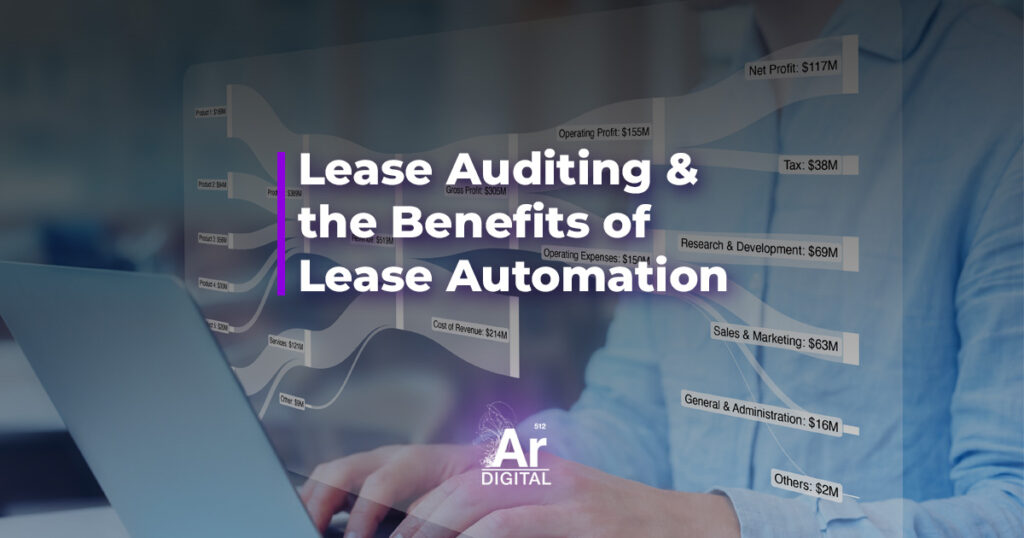The Value of Automation in Lease Auditing for Manufacturers Offering Leasing Options
How can lease auditing and automation of your lease management processes impact your business?
In today’s competitive business landscape, manufacturers are continually exploring innovative ways to attract customers and increase revenue streams. One such method that has gained popularity is offering leasing options for their products. Leasing allows customers to access high-quality products without making an upfront purchase, making it an attractive choice for many.
However, managing lease agreements can be a complex and time-consuming process for manufacturers. That’s where lease auditing and lease automation come into play, offering a valuable solution to efficiently handle lease agreements and maximize returns. In this article, we’ll discuss the significance of lease auditing and how automation can revolutionize lease management for manufacturers.
Understanding Lease Auditing
Lease auditing is a systematic examination of lease agreements to ensure compliance and accuracy in billing, payments, and other critical lease-related activities. For manufacturers that provide leasing options, it is essential to maintain a transparent and error-free lease management system. Without proper auditing, manufacturers could encounter various issues, such as revenue leakage, incorrect billing, missed payments, and lease terms violations.
Traditionally, lease auditing was a manual process that involved laborious data analysis, cross-referencing lease documents, and identifying discrepancies. However, with the advent of technology, automation has emerged as a game-changer in the lease auditing process.
The Benefits of Automation in Lease Auditing
1. Enhanced Accuracy and Efficiency
Manual lease auditing is prone to human errors, which can lead to financial losses and legal complications. Lease automation, on the other hand, ensures accuracy by efficiently processing vast amounts of lease data and identifying discrepancies with precision. By automating the auditing process, manufacturers can significantly reduce the risk of errors and streamline the entire process, saving valuable time and resources.
2. Timely Lease Renewals and Notifications
Lease agreements come with expiration dates, and timely renewal is crucial to maintaining a seamless leasing process. Automation enables manufacturers to set up alerts and notifications well in advance of lease expirations. This proactive approach ensures that renewal negotiations can begin on time, minimizing any disruptions to customer service and revenue generation.
3. Identifying Revenue Leakage
Revenue leakage occurs when manufacturers miss out on potential income due to unnoticed billing errors or uncollected payments. Automation can flag discrepancies in billing and payment records, enabling manufacturers to recoup lost revenue promptly. This newfound revenue can have a significant impact on the manufacturer’s bottom line and overall profitability.
4. Compliance with Regulatory Standards
Lease agreements are subject to various regulatory standards, and non-compliance can lead to legal consequences. Automation helps manufacturers stay compliant by tracking changes in regulations and ensuring that all lease agreements adhere to the latest requirements. By maintaining compliance, manufacturers can avoid penalties and protect their reputation in the market.
5. Centralized Data Management
In a manual lease auditing system, data is often scattered across multiple spreadsheets and documents, making it challenging to access critical information quickly. Automation centralizes all lease-related data in a secure digital environment, providing easy access to authorized personnel. This centralized data management simplifies the auditing process and fosters better collaboration among teams.
6. Real-time Reporting and Insights
Lease automation generates real-time reports and insights on lease performance, revenue generation, and customer behavior. Manufacturers can leverage this data-driven approach to make informed business decisions, identify leasing trends, and optimize their leasing strategies for better customer engagement.
7. Seamless Integration with Existing Systems
Many manufacturers already use lease management software or customer relationship management (CRM) systems. Automation solutions can seamlessly integrate with these existing systems, making the transition to automated lease auditing smooth and hassle-free.
Embracing Automation for Lease Auditing Processes
The decision to implement automation for lease auditing is a strategic one for manufacturers. Here are some steps to embrace automation effectively:
Identify Suitable Automation Solutions
Manufacturers must research and identify the most suitable automation solutions that align with their specific lease auditing requirements. There are various software options available, each offering different features and functionalities. It is essential to choose a solution that meets the manufacturer’s needs and integrates well with existing systems.
Do you need help assessing and selecting the right software to automate your lease management process?
Train Personnel
While automation simplifies the auditing process, personnel involved in lease management should receive adequate training to use the new system efficiently. Proper training ensures that all team members can navigate the automation software and utilize its full potential.
Data Security and Privacy
As lease agreements often involve sensitive customer information, data security and privacy are paramount. Manufacturers must ensure that the chosen automation solution complies with industry security standards and protects customer data from unauthorized access.
Monitor and Optimize
After implementing a lease automation solution, manufacturers should regularly monitor the system’s performance and gather feedback from personnel. This allows them to identify any potential issues and optimize the automation process for maximum efficiency.
Don't Underestimate the Value of Automation in Lease Auditing
Lease auditing plays a vital role in ensuring accuracy, compliance, and revenue optimization for manufacturers offering leasing options to customers. By embracing automation, manufacturers can elevate their lease auditing process to new heights, enjoying enhanced accuracy, efficiency, and revenue generation. Lease automation not only streamlines the lease auditing process but also empowers manufacturers with valuable insights to make informed business decisions.
As technology continues to evolve, automation will remain a cornerstone in managing lease agreements and driving success for manufacturers in a competitive market.



